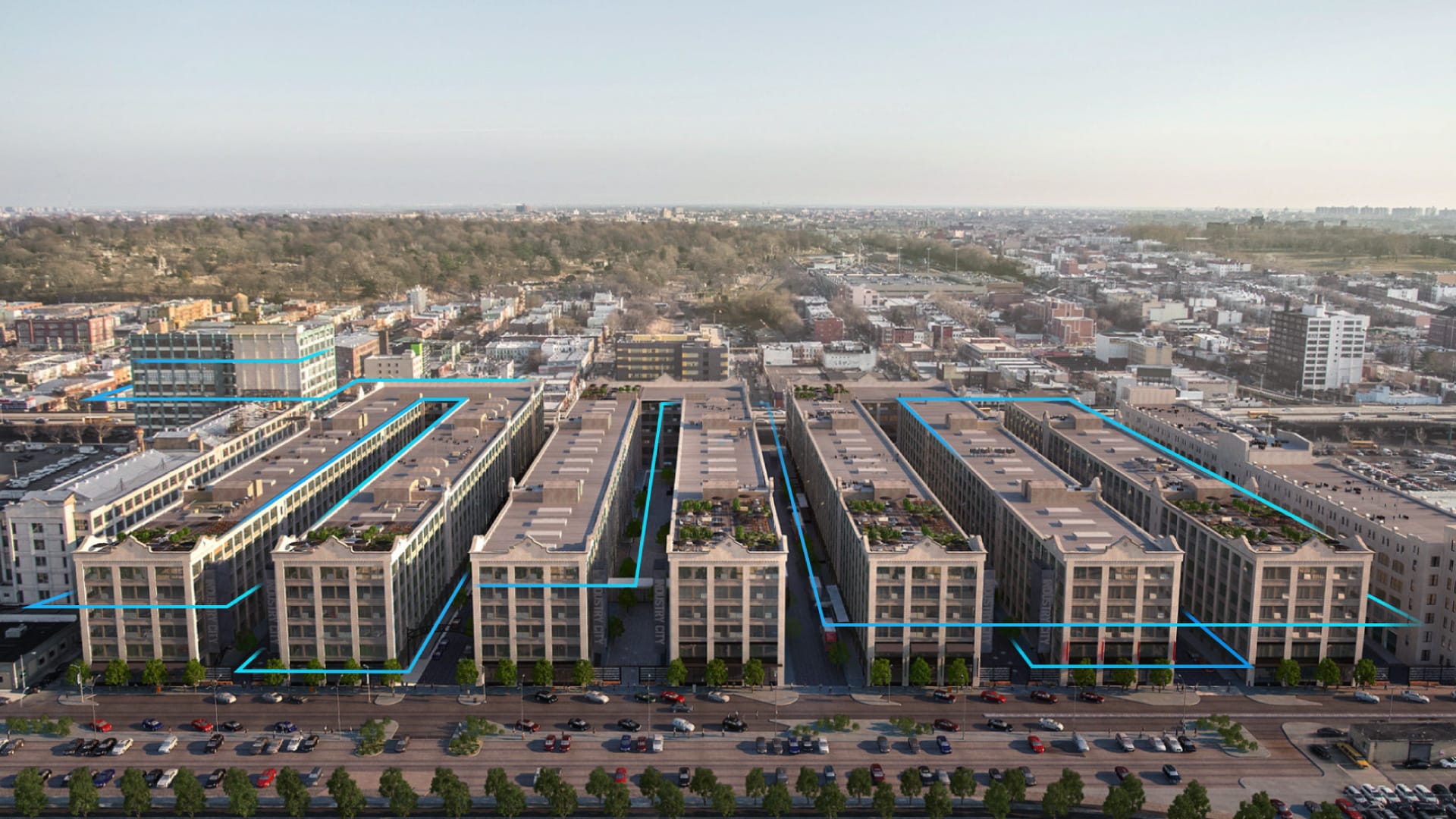Interview with Charles Dean, IT Infrastructure Manager @ Industry City – the largest interconnected campus in the US
Industry City in Brooklyn, NY, is the largest interconnected campus in the US. Built on 35 acres of repurposed industrial space, it’s home to 550+ businesses helping to drive an innovation economy in the Brooklyn area. Recently, we spoke with Charles Dean, the IT Infrastructure Manager at Industry City, about what makes the campus unique and the amazing growth and traction Industry City has experienced over the years.
Q: Tell us about the technology infrastructure at Industry City.
A: Industry City is growing fast and the infrastructure is evolving.
In order to appreciate the evolution of the technology and connectivity infrastructure at Industry City, you need to remember that these buildings were built pre-WWII. Together with our connectivity partner, DataVerge, we have developed fiber paths which run over the entire complex of 16 buildings through conduits. And we continue to add fiber, including true redundant paths. Whether you are a tenant or a visitor, you experience the best in fast, uninterrupted connectivity throughout all 16 buildings.
Q: What are the main tech / connectivity benefits for coworking and leasing tenants?
A: We have partnered with DataVerge as the connectivity partner of choice at Industry City. We vetted them extensively – their rich connectivity options, resilience, scalable infrastructure, and their ability to foresee and resolve issues – and they passed with flying colors. What this means to the community at Industry City is that they now have almost unlimited options when it comes to fastest connectivity, and at a cost-effective price. Every tenant suite is already wired with a direct connection to DataVerge. “Turning on” the connectivity for new tenants is a flip of a switch and a quick install. And since DataVerge is located at Industry City, there are a number of other services that our tenants can take advantage of, including IT support or management of their entire IT closet within the DataVerge facility.
Another great benefit of partnering with DataVerge is that they are able to support our event spaces, and maybe most importantly, support our guest wifi. It’s a relief to know that if I can’t be onsite when something goes wrong on a weekend or holiday, DataVerge is there 24/7/365 for our community.
Lastly, DataVerge guarantees 99.999% uptime. That means it’s virtually impossible for your network to be down. But DataVerge takes it a step further. If you connect through DataVerge, they can pinpoint problems almost immediately and address them quicker than any other vendor. We can’t do that at Industry City. If a client’s Internet goes down and they are not connected through Dataverge, I can’t help them pinpoint where the issue is. Tenants have to wait for their ISP to send out a support team.
Q: What is the most exciting part of being in charge of Industry City’s tech infrastructure?
A: When I joined Industry City I was already a consultant and knew that Industry City needed an experienced infrastructure leader to tie things together. My goal was to develop a strategic plan and execute on centralizing and standardizing the IT and connectivity setup at the entire complex. As expected, my role at Industry City has been the perfect one for me. I like to fix things and Industry City, as big it as is, is never a boring job. For example, one of the first things I did when I joined was to conduct a thorough penetration test of all of our infrastructure to identify red flags, vulnerabilities or potential issues. This was my starting point in unifying the connectivity and infrastructure powering our complex, while always looking out for the security and protection of our customers, tenants and visitors.
Q: What can other innovation hubs learn from your experience at Industry City?
A: I think what other innovation hubs can learn is really how to plan. There is a lot to consider, but here are a few of the items that other leaders might find most helpful.
Physical layers: Modeling and projecting out your budgets and costs not only for this or next year but for years ahead. Fiber networks are really complex to deploy – they take a multi-phased approach and require very specific expertise to roll them out. a.
Building infrastructure: Not all buildings are the same – factoring in the various building profiles that make up your complex, will enable you to map out your supporting infrastructure and its architecture to accommodate for current and future growth and tenant needs. Layouts aside, you need to factor for advances in compute technology, moving from CPUs to GPUs and soon QPUs – quantum processing units, and plan for their gradual additions and rollouts.
Internet Service Providers (ISPs): It’s important to retain control over carriers and ISPs coming into the building. Make it clear in your guidelines that all ISPs and network providers need to stick to your infrastructure requirements. You want to make sure your requirements clearly outline where access points are, where lines can and cannot be installed or run.
Q: What do you recommend they follow in terms of best IT practices?
A: I always focus on the IT fundamentals, but here are 3 other items I usually put on my list to support operations:
- Upgrade cameras and security around the perimeter and in key locations
- Build management systems, with good documentation and processes
- Automate the management of key operations, like heating, cooling and electricity
Q: Tell us a bit more about you
A: I am an open source guy and I am always interested in getting my eyes on the latest ways companies to grow and mature, and the way IT enables their growth. IT leaders today have to understand what makes businesses tick, and how new advances in technology make all of their innovation possible. Some of the companies and people I follow in the industry for inspiration and the latest best practices include:
- John Hammond – he is a cybersecurity researcher, educator and content creator. He also runs a YouTube channel showcasing programming tutorials, CTF video walkthroughs, malware analysis and other cybersecurity content.
- David Bombal’s company provides courses on a wide range of topics, including networking, programming and software development.
- Lawrence Systems is a company focused on technology consulting, on-site computer repair, maintenance, structured cabling, build out, and much more. Their VLOG is one of my favorites.
When I’m not working, I enjoy spending time with my wife and our 2 kids.
Thank you, Charles, for sharing your thinking, expert tips and inspiration with us. We are proud to be your connectivity partner of choice and look forward to continuing to set the standard for interconnected campuses around the country!
Ray, Ruben and Jay
The management team at DataVerge



